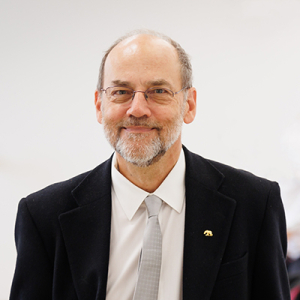ASD05K.1 ASD Embedded Keyote: Certainty or Intelligence: Pick One!
Edward Lee, University of California, Berkeley, United States

Mathematical models can yield certainty, as can probabilistic models where the probabilities degenerate. The field of formal methods emphasizes developing such certainty about engineering designs. In safety critical systems, such certainty is highly valued and, in some cases, even required by regulatory bodies. But achieving reasonable performance for sufficiently complex environments appears to require the use of AI technologies, which resist such certainty. This extended abstract suggests that certainty and intelligence may be fundamentally incompatible.
Edward A. Lee is Professor of the Graduate School in EECS at UC Berkeley. He is the author of several books and more than 300 papers and has delivered more than 200 keynote and other invited talks at venues worldwide. Lee's research focuses on cyber-physical systems, which integrate physical dynamics with software and networks. His focus is on the use of deterministic models as a central part of the engineering toolkit for such systems. He is the director of iCyPhy, the Berkeley Industrial Cyber-Physical Systems Research Center. From 2005-2008, he served as chair of the EE Division and then chair of the EECS Department at UC Berkeley. He led the development of several influential open-source software packages, notably Ptolemy and its spinoffs and, more recently, Lingua Franca. His degrees are from Yale (BS), MIT (SM), and Berkeley (PhD). From 1979 to 1982 he was a member of technical staff at Bell Labs in Holmdel, New Jersey. He is a co-founder of BDTI Inc. and Xronos Inc. and has consulted for a number of other companies. He is a Fellow of the IEEE, was an NSF Presidential Young Investigator, won the 1997 Frederick Emmons Terman Award for Engineering Education, received the 2016 Outstanding Technical Achievement and Leadership Award from the IEEE Technical Committee on Real-Time Systems (TCRTS), the Berkeley Citation in 2018, the 2019 IEEE Technical Committee on Cyber-Physical Systems (TCCPS) Technical Achievement Award, the 2022 European Design and Automation Association (EDAA) Achievement Award, an Honorary Doctorate in Computer Science from the Technical University of Vienna in 2022, and the 2023 CASES Test of Time Award for a paper published in 2008. For more details, see: https://ptolemy.berkeley.edu/~eal/.


